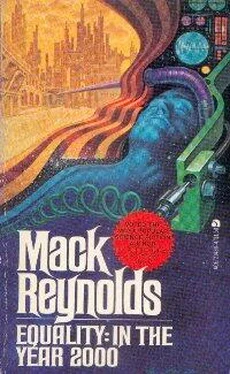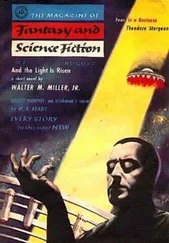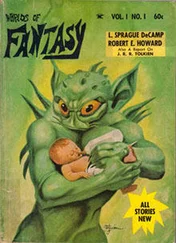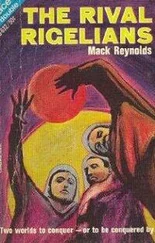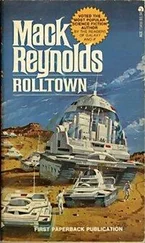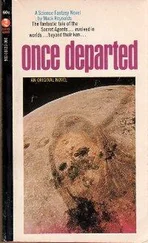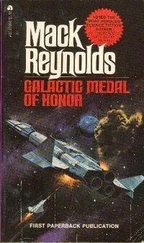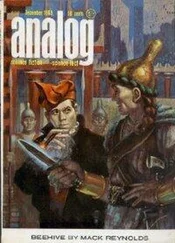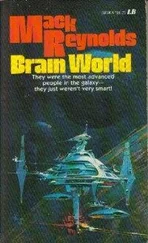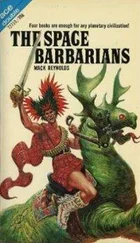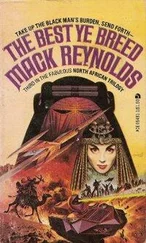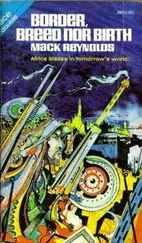Mack Reynolds - Equality - In the Year 2000
Здесь есть возможность читать онлайн «Mack Reynolds - Equality - In the Year 2000» весь текст электронной книги совершенно бесплатно (целиком полную версию без сокращений). В некоторых случаях можно слушать аудио, скачать через торрент в формате fb2 и присутствует краткое содержание. Год выпуска: 1977, ISBN: 1977, Издательство: Ace Books, Жанр: Фантастика и фэнтези, на английском языке. Описание произведения, (предисловие) а так же отзывы посетителей доступны на портале библиотеки ЛибКат.
- Название:Equality: In the Year 2000
- Автор:
- Издательство:Ace Books
- Жанр:
- Год:1977
- ISBN:0-441-21430-4
- Рейтинг книги:3 / 5. Голосов: 1
-
Избранное:Добавить в избранное
- Отзывы:
-
Ваша оценка:
- 60
- 1
- 2
- 3
- 4
- 5
Equality: In the Year 2000: краткое содержание, описание и аннотация
Предлагаем к чтению аннотацию, описание, краткое содержание или предисловие (зависит от того, что написал сам автор книги «Equality: In the Year 2000»). Если вы не нашли необходимую информацию о книге — напишите в комментариях, мы постараемся отыскать её.
Equality: In the Year 2000 — читать онлайн бесплатно полную книгу (весь текст) целиком
Ниже представлен текст книги, разбитый по страницам. Система сохранения места последней прочитанной страницы, позволяет с удобством читать онлайн бесплатно книгу «Equality: In the Year 2000», без необходимости каждый раз заново искать на чём Вы остановились. Поставьте закладку, и сможете в любой момент перейти на страницу, на которой закончили чтение.
Интервал:
Закладка:
“What rank did you hold… Julian?”
“I was discharged a major.”
The other was leaning forward. “Excuse me, but… well, did you ever kill anyone?”
Julian took a breath. “Yes.”
“How many?”
He shook his head. “I don’t know. I haven’t the vaguest idea. You see, in modern warfare—I suppose I should say in the Vietnam War, rather than use the term ‘modern’—combat doesn’t much resemble the war films you have possibly scanned from the data banks. Hollywood didn’t make movies that portrayed reality; they would be too boring. In the movies, the action is eyeball to eyeball, with the bad guys—the Germans, Japs, Koreans, Viet Cong, or whoever—falling like flies before the good guys who are armed with submachine guns that never run out of ammo and never heat up, no matter how many hundreds of rounds go through the barrels in a few minutes. In actuality, you see comparatively little of the enemy, although there are some exceptions. Fire power is all the thing. You fire in the general direction of where his fire is coming from. You put as much lead and steel into the air as you can, hoping that Charlie will run into it. You saturate the area he is in with bullets, with mortar shells, with artillery shells, with bombs from your air cover. And then, when all is quiet and Charlie is either dead or, more likely, has largely slipped away, you go forward and get a body count.”
“A body count?” Edith said. In spite of herself, her face was registering that she was upset.
Julian looked at her. “Yes. It was a return to the barbarism of Indian warfare days. To prove how many of the enemy we had killed, we cut off their ears and took them back to base headquarters.”
“Proof of the number you had destroyed, eh?” Sean asked, fascinated.
Julian took another quick breath. “Yes. But the thing is, the Colonel, and the General above him, liked to have an impressive body count, so we customarily also cut the ears off any women, children, or old men that had managed to get in the line of fire or bombing.”
“But those were civilians,” Edith said in horror.
“Right,” Julian agreed, his tone sour. “But we couldn’t allow that to interfere with a good body count.” He scowled at Sean. “Did you labor under the illusion that combat was glamorous?”
The other didn’t respond. Instead he asked, “Were you ever afraid when you were fighting?”
“I was always afraid when I was fighting,” Julian said flatly. “Anybody in combat who doesn’t get afraid—the hero type, in short—isn’t the kind of man you want next to you. He’s one of the crazies and is apt to get you in trouble.”
That set the student of history back a bit. He asked his next question more hesitantly, “Did you ever do anything that resulted in your being decorated, getting a medal?”
Julian grunted. “I was awarded the Distinguished Service Cross, also several battle stars and three Purple Hearts.” A muscle jumped in his jaw and he looked into Edith’s face almost apologetically. “I didn’t ask for them. After two or three weeks in the rice paddies and the jungles, I did not ask for those things. But it was meaningless to refuse them—particularly the Purple Hearts.”
“Purple Hearts?” she echoed.
“Yes. You received one for being wounded.”
Her eyes rounded.
He shrugged it off. “Routine stuff. Once I was hit by a piece of mortar shell while sitting in a foxhole minding my own business. Once I stepped on a homemade Viet Cong mine. It didn’t go off very efficiently or I wouldn’t be here. The other time I was hit by an M-16 rifle slug from one of my own men. It was an accident… I think. Toward the end of the war, quite a few officers took hits from their men, if they seemed to be too gung ho. Not that I was.”
“Gung ho?” Sean said. He had been taking notes in a small black notebook with a stylo.
“Anxious to win the war,” Julian explained dryly. “Officers who would try to get their men into situations the men didn’t like the looks of.”
“But I thought you had to obey an officer’s orders.”
“Yes, that was the theory. But it wasn’t a very popular war and the men wanted to live long enough to go home. Nobody seemed to know why we were fighting except the politicians back in Washington. Toward the end, morale was so bad among the infantry that it was impossible to remain in Vietnam, which was one of the real reasons we pulled out, rather than the propaganda reasons the people were given.” He stopped. “Why are you taking notes, Sean?”
The younger man flushed. “When I was turned down as a teacher, I decided that one way to be active in the work I like is to become a journalist. I plan to do as many articles as I can on developments in the fields I know and submit them to the news. If enough readers dial my articles, I may be able to become a full-time journalist. I’d rather teach, but since my Aptitude Quotient wasn’t high enough, journalism might be the next best thing.”
“I wish you luck, Sean,” Edith said. She took her transceiver from her pocket and touched the stud for the time. “My goodness, sirs,” she exclaimed. “I’ll have to run. I have an appointment.” She rose with a degree of grace that didn’t go unnoticed.
Julian had also started to stand, but she grimaced at him playfully. “None of that male chauvinism courtesy,” she said. “I don’t stand for you, why should you for me?”
“I was going to see you out.”
“Why? I can find my own way to the door and you’re still talking to Sean.”
“As you wish,” he said in resignation. “I’ll see you later, Edie.”
“Fine. Is there anything you need that we haven’t checked you out on as yet?”
“I can’t think of anything.”
She looked about the room. “This place is on the grim side. Why don’t you dial Art, in the data banks, and select some paintings?”
“I was going to ask you about that. Can I afford them?”
“The price is minimal.”
He said unhappily, “I imagine modern art is pretty far out. Frankly, my tastes never developed beyond the Impressionists.”
Edith practically snorted. “With some twenty million painters in the country, every school that ever existed, from the Cro-Magnon cave painters to the present, is represented. You’ll find all the Impressionists you want in the painting banks.”
“Twenty million painters?” he repeated blankly.
Both Sean and Edith laughed.
Edith said, “I don’t really know the exact number. I told you that just about everyone in United America has at least one art or handicraft as a hobby, beyond whatever type of work he specializes in. Well, until later… Good-bye, Sean.”
The young man waved farewell to her, and she turned and left.
Julian looked back at Sean. “Anything more you want to know about blood and guts?”
“Not at the moment.” The other put away his notebook and stylo. “But I’d appreciate the opportunity to talk with you more when I’ve digested what you’ve told me and thought up some more questions.”
“Anytime. I’ll probably have a few to ask you, as well. I seem to have done most of the talking today.”
Sean hesitated for a moment. “You know, I have some friends who would love to meet you too. Do you think you could sneak away from Doctor Leete and his family some evening?”
“Sneak away?”
Sean laughed, in some embarrassment. He said, “Leete’s been given the job of adjusting you to your new environment, and it’s well known that he’s keeping you on a tight rein. It frustrates some of the rest of us who would love to have the chance to talk with a man who has actually been in combat—just a few months ago, in his mind—who has witnessed riots in the streets of the nineteen-sixties, who remembers clearly the days of street crime, juvenile delinquency, and all the rest of it.”
Читать дальшеИнтервал:
Закладка:
Похожие книги на «Equality: In the Year 2000»
Представляем Вашему вниманию похожие книги на «Equality: In the Year 2000» списком для выбора. Мы отобрали схожую по названию и смыслу литературу в надежде предоставить читателям больше вариантов отыскать новые, интересные, ещё непрочитанные произведения.
Обсуждение, отзывы о книге «Equality: In the Year 2000» и просто собственные мнения читателей. Оставьте ваши комментарии, напишите, что Вы думаете о произведении, его смысле или главных героях. Укажите что конкретно понравилось, а что нет, и почему Вы так считаете.
